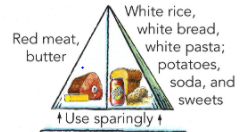Industry-funded study of the week: Soy foods
I recently received an email from the Soyfoods Council: “If You’re Confused About Endocrine Disruptors, Here’s Why Soy Isn’t One.”
The email explained that “the Soyfoods Council is a non-profit organization, created and funded by Iowa soybean farmers, providing a complete resource to increase awareness of soyfoods, educate and inform media, healthcare professionals, consumers and the retail and foodservice markets about the many benefits of soyfoods. Iowa is the country’s number one grower of soybeans and is the Soyfoods Capital of the world.”
The email referred to a just-published paper
The Study: Neither soyfoods nor isoflavones warrant classification as endocrine disruptors: a technical review of the observational and clinical data, by Mark Messina,Sonia Blanco Mejia,Aedin Cassidy,Alison Duncan,Mindy Kurzer,Chisato Nagato, et al. Critical Reviews in Food Science and Nutrition, published online: 27 Mar 2021.
Conclusion: After extensive [my emphasis] review, the evidence does not support classifying isoflavones as endocrine disruptors.
Funding: “Funds were provided by the Soy Nutrition Institute and the European Plant-based Food Association to MM and the Toronto 3D Knowledge Synthesis & Clinical Trials Foundation for work related to the development and writing of this paper.”
Disclosures: Mark John Messina receives funding from the Soy Nutrition Institute as its Executive Director. Both Mindy Kurzer and John Sievenpiper are on the advisory board of the Soy Nutrition Institute. Ian Rowland is on the advisory board of the European Plant-based Foods Association. I have disclosed those interests fully to Taylor & Francis, and have in place an approved plan for managing any potential conflicts arising from these positions.
Comment: “Extensive” is an understatement; the paper has 688 references. This may be overkill, but its purpose is to put to rest any concerns that soybeans might act as endocrine disrupters and, therefore, should be avoided. The Soy Foods Council, obviously, wants you to stop worrying about this and paid for this review for that purpose.
I’m not particularly worried about soybeans. As I wrote in What to Eat, I view soy as neither poison nor panacea. But there is plenty of evidence on both sides. That’s why paid reviews are not helpful.



